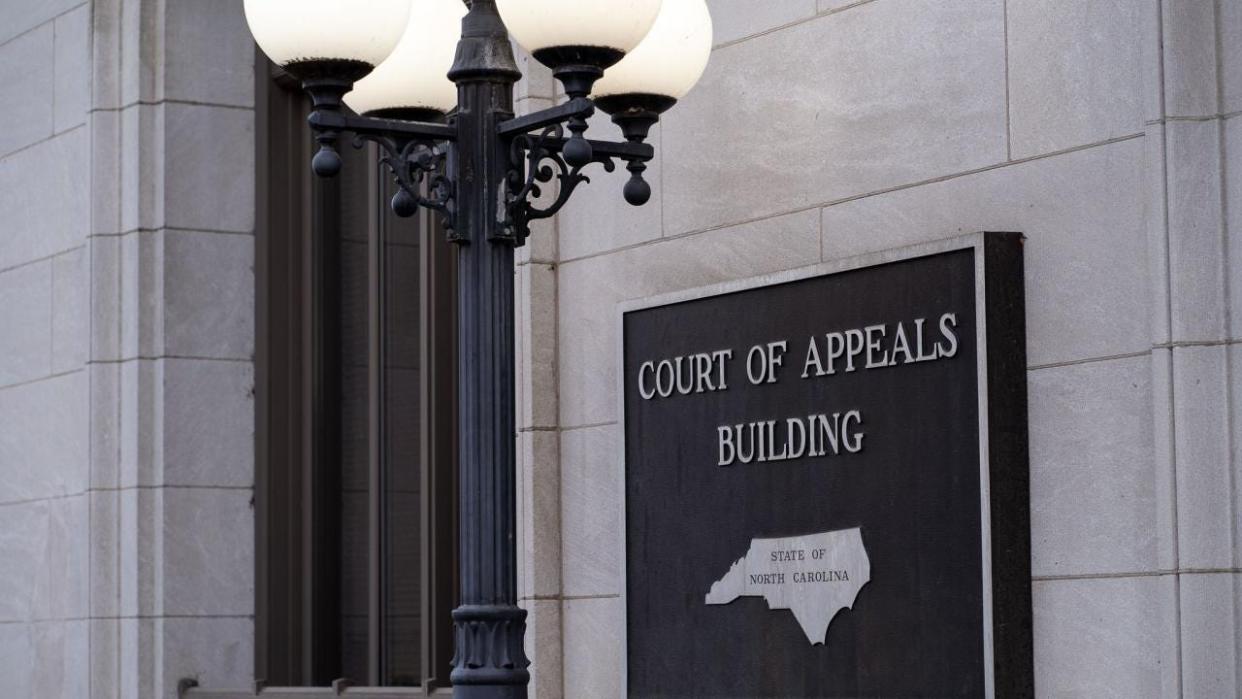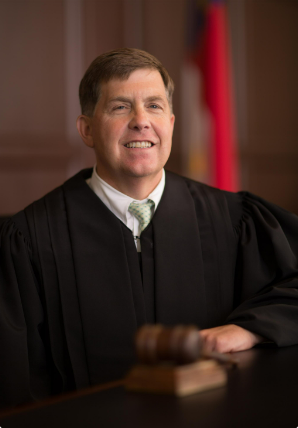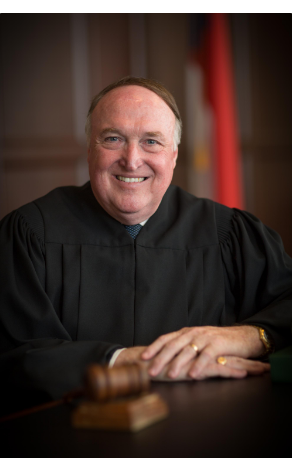Unconscious blood draw could mean NC Supreme Court DUI appeal; man convicted in Asheville

A Buncombe County man convicted of drunken driving using blood drawn while he was unconscious could bring a constitutional case to the state's highest court.
The North Carolina Court of Appeals ruled July 5 against Kyle Allen Burris, with two of the three judges saying "exigent circumstances 'almost always' exist to conduct a warrantless blood draw where an unconscious driver is taken to the hospital."
But because one of the judges dissented, calling the decision not to seek a warrant the "height of hypocrisy," Burris now has an automatic right of appeal to the N.C. Supreme Court. It is not clear yet if he will do so. Neither Burris nor attorneys on either side of the case responded to July 6 messages.
Burris, now 34, was a resident of Leicester, though some records now show he lives in Madison County.
Ruling in favor of Burris' Buncombe County Superior Court conviction were Judges Chris Dillon and Fred Gore. Judge John Tyson dissented. All are Republicans. An appeal based on an alleged violation of Burris' Fourth Amendment right against unreasonable search and seizure would face a Supreme Court made up of five Republicans and two Democrats.
The case originated with N.C. Highway Patrol Trooper Richard Lancaster responding to a single-vehicle accident on Browntown Road in Leicester the night of Nov. 22, 2014. Lancaster found a pickup truck off the right side of the road with extensive damage, according to an incident report and court documents. The truck was against a steel fence and Burris was lying trapped underneath, unresponsive, bleeding extensively and apparently badly injured, the documents said.
Lancaster testified Burris smelled of alcohol and that he found open beer cans in and out of the truck. An ambulance took Burris to the hospital while the trooper spent an hour investigating and securing the scene, during which he determined Burris was the truck's owner. There was no evidence anyone else had been riding in the truck, he said.
Writing for the majority Dillon said evidence showed "the trooper went directly to the hospital after completing his work at the crash scene, and that the trooper obtained a blood sample from Defendant while Defendant remained unconscious."

Using that evidence, Burris was convicted in 2017 in District Court for driving while impaired and reckless driving to endanger. Judge Patricia Young denied a motion to suppress the blood test, which showed an alcohol level above the legal limit, and sentenced him to five days in jail with credit for time served.
Burris appealed to Superior Court, exercising his automatic right to a jury trial which was held in 2021. There Judge Jacqueline Grant also denied the motion to suppress the evidence. The jury returned guilty verdicts on both charges and he was sentenced to a six-month suspended sentenced with probation and made to pay $1,100 in fines and fees. He filed an appeal within weeks.
Fourth Amendment protections prevent blood draws except in special circumstances, including consent of the person in question, a warrant or "exigent circumstances" with probable cause, the entire three-judge Appeals Court panel agreed.
More on the Fourth Amendment: Asheville man's civil rights suit against sheriff deputy settled; false cocaine evidence
But Judges Dillon and Gore said those circumstances, which can include the imminent destruction of evidence, existed in this case.
In his written ruling, Dillon pointed to the 2019 U.S. Supreme Court Mitchell v. Wisconsin decision. That case, he said, "sidestepped" the constitutionality of state statutes saying people give implied consent to alcohol tests by driving on public roads.
NC Highway trooper-involved shooting on I-26 near Asheville leaves suspect dead
Instead, he said the cause showed blood could be drawn if there was probable cause evidence would disappear.
"(Burris') injuries were such [the officer] was concerned that he would probably have to undergo surgery, and it could even possibly lead to a fatality. And in those circumstances, the blood alcohol evidence would dissipate as more time passed," the judge wrote.

In his dissent, Tyson said the person who should have decided whether blood could be drawn was a "detached and neutral" magistrate through the warrant process. But instead of seeking a warrant, the trooper read Burris his rights despite the fact he was "injured and unconscious" and "utterly incapable of understanding and giving informed consent." He then demanded and compelled medical personnel to draw his blood, the judge said.
"This warrantless blood extraction makes a mockery of both the Fourth Amendment’s protections of 'the right of the people to be secure in their persons' and the prohibitions 'against unreasonable searches and seizures,'" Tyson said.
More: Asheville Blade reporters found guilty of trespassing: Superior Court verdict
Joel Burgess has lived in WNC for more than 20 years, covering politics, government and other news. He's written award-winning stories on topics ranging from gerrymandering to police use of force. Got a tip? Contact Burgess at jburgess@citizentimes.com, 828-713-1095 or on Twitter @AVLreporter. Please help support this type of journalism with a subscription to the Citizen Times.
This article originally appeared on Asheville Citizen Times: Blood draw may mean NC Supreme Court DUI appeal; Asheville conviction

